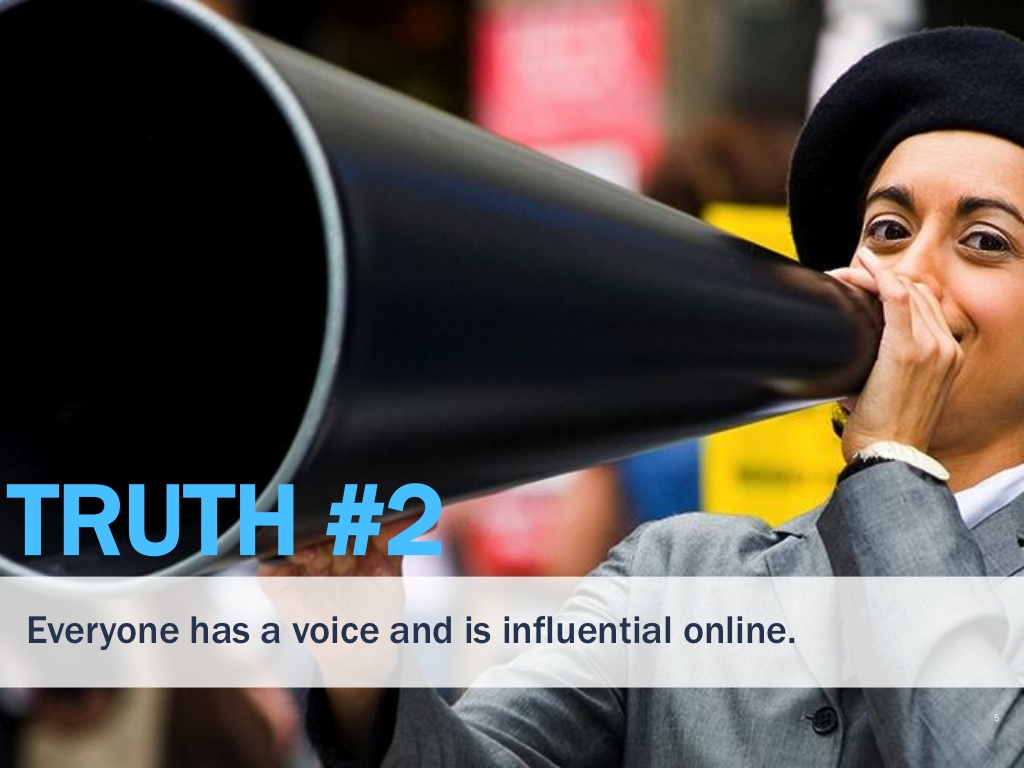
Courtesy of Edelman
As I’ve previously blogged about, the future of business is social.
In a world where we’re permanently thumbing our smartphones, swiping a tablet or typing on a notebook, it is impossible to ignore the significance of social channels in business. While everybody in a start-up can “go social” quite easily, how should medium to large organisations craft their policies, re-route their processes, re-build their structures or re-wire their systems?
Enter Edelman’s thought provoking ideas in Social Business for Complex Organisations. I was so enamoured by this that I thought I’d embed the entire presentation below for you to follow.
Key ideas can be summarised into 10 major points:
1) There are 4 truths in this day and age:
a) Communication continues to reach further faster;
b) Everyone has a voice and is influential online;
c) The increasingly connected world generates an overflow of information; and
d) Core business objectives will remain constant.
2) Internally, information needs to be more efficiently and effectively managed. Employees must be empowered to build an innovative culture. Externally, organisations must engage in multi-stakeholder conversations, humanize their brands and embrace the rise of the individual.
3) Social business planning is the blueprint transforming an organisation which bridges the internal with the external. It creates a more connected way of doing business through three dimensions:
a) People – Behaviours, collaborations, executive support, participation, and organisational models;
b) Process – Social media policies, technology, customer support, workflows, and measurement frameworks; and
c) Platforms – Online monitoring, analytics, internal collaboration, communities, and social CRM.

Courtesy of Edelman
4) Social enterprise (internal) must support the social brand (external).
5) Value can be created through effective stakeholder engagement, both internal with employees, and external with customers, partners and the media. This was a point I’ve also highlighted previously.
6) Develop a centre of excellence geared towards evaluating the social landscape. This can be done through central management and the inculcation of operational practices such as listening, planning and engaging.
7) Structure social media roles with cross-discipline teams.
8) Formalise governance processes through policies, incentives, and clear accountabilities.
9) Create different ways for employees to participate as follows:
a) Listener – the basic level of participation where one subscribes to Google Alerts, monitors Twitter and Facebook, subscribes to RSS feeds and follows the company blog;
b) Conversationalist – an intermediate level participant who does some micro blogging on Twitter, engage in two-way conversation on Facebook and Twitter, and comments on 3rd party blogs;
c) Content Creator – an advanced level participant who records and uploads videos and photos on YouTube, Flickr, Instagram, Twitvid, Google+ etc, and writes and publishes blog content.
10) Establish frameworks for collaborating, listening and measuring across the entire organisation.
Naturally, the biggest challenge in building social businesses is not in developing the tools, structures and platforms. After all, many of these have been around for quite a few years.
Rather, the largest obstacle lies in overcoming organisational inertia and the vested interests of incumbents. This is especially true in Asia, where organisations tend to be more hierarchical and tradition bound.
Having said that, I am optimistic that this will change. One cannot stop the ubiquitous influence of social devices in every facet of our lives. It only makes sense for companies to get into the act.
The question, however, is how firms can do so without throwing the business baby out with the bathwater. In this sense, social business planning frameworks such as Edelman’s can help to illuminate the path forward.

Hi Walter, thank you for summarising the presentation. I have to say that I find far too complex the way they help complex organisations to become social businesses.
Pedro
Easily, the article is actually the best topic on this registry related issue. I fit in with your conclusions and will eagerly look forward to your next updates. Just saying thanks will not just be sufficient, for the fantasti c lucidity in your writing. I will instantly grab your rss feed to stay informed of any updates. bizspark